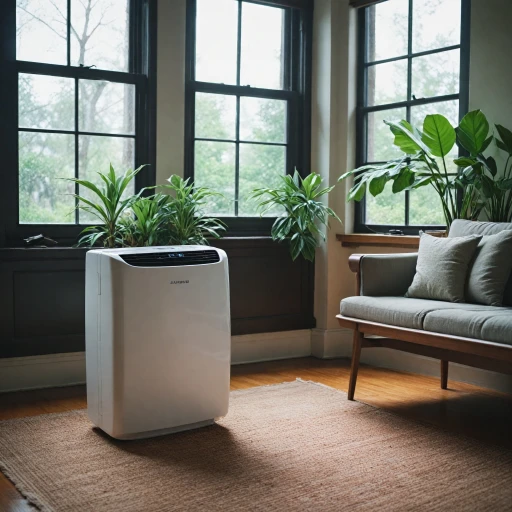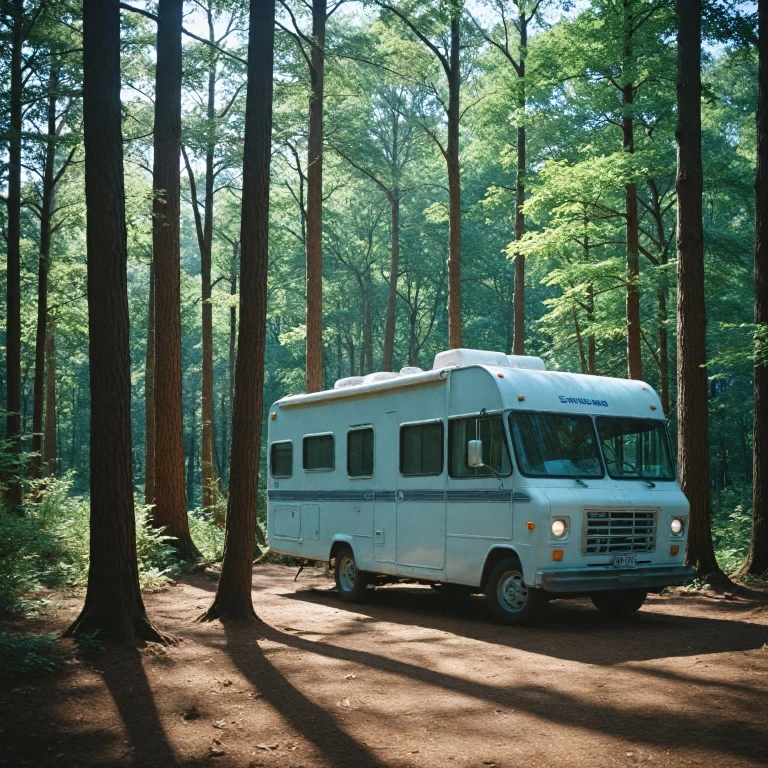Understanding the importance of size and efficiency
Choosing the Right Air Conditioner Size
Finding the perfect compact AC unit for your camper involves understanding the importance of size and efficiency. The air conditioner needs to be small enough to fit into the available space, yet powerful enough to cool your camper effectively. Units with different BTU ratings will suit varying sizes of campers, so it’s essential to select one that matches your needs.
Efficiency: Balancing Power and Energy Consumption
When evaluating potential air conditioners, consider their energy efficiency and cooling capacity. Portable AC units often come with an energy star rating that indicates how efficiently they operate. A unit with a high cooling power but low energy consumption will be more cost-effective and environmentally friendly.
Factors Impacting Optimal Performance
The air distribution system also plays a critical role in efficiency. Systems that offer ducted or split options may provide more even cooling throughout the camper. Additionally, a remote control feature provides convenience and ease of use when adjusting settings.
Selecting the right size and efficiency can ensure the unit provides the needed cooling without overburdening your camper’s power system, especially if you are considering a battery-operated solution. This balance of performance and consumption will save on initial and operational costs.
Learn more about selecting an ideal portable cooler for your needs.
Choosing the right portable cooler for your needsTop features to look for in a compact camper AC
Essential Attributes for Your Compact Camper Cooling Needs
When searching for the perfect compact air conditioning unit for your camper, it's crucial to consider a few key features that optimize performance while accommodating space constraints. After all, the last thing you want during your trip is an inefficient cooling system struggling to beat the heat.
- Cooling Power and BTU: The cooling capacity of a unit, measured in BTU (British Thermal Units), is a primary determinant of its ability to cool your camper. Matching the BTU rating to your camper size is vital. A unit with around 5,000-7,000 BTU may suffice for smaller spaces, whereas larger campers may require more powerful units to maintain comfort levels.
- Energy Efficiency: Look for air conditioners with a high energy star rating. Efficient units not only reduce energy costs but also extend battery life, making them perfect for off-grid adventures.
- Portability and Installation Flexibility: Compact ACs can be ducted or stand-alone portable units. A portable air conditioner that opens the window slightly can be a quick fix, whereas a full rooftop air conditioner or a mini-split system may suit those seeking a permanent solution.
- Dual Heating Feature: Selecting a unit with a heat pump or conditioner heat option expands its utility beyond summer, providing warmth in colder months.
- Remote Control and Smart Features: Convenience is key when camping. Many modern units come with remote control, or even smart features, allowing for easy adjustments to the cooling or heating system without leaving your cozy spot.
These essential features work in conjunction to provide a seamless cool and sometimes warm camping experience. For a detailed comparison of different types of portable air conditioners, particularly those featuring portable designs without a hose, consult our
comprehensive guide.
Comparing popular models of small AC units
Comparing Small AC Units: Essential Factors
When considering the best air conditioning units for your camper, understanding the key differences among popular models is crucial to ensure efficient cooling relative to your space requirements.
Look for air conditioners that provide the right balance between cooling power and energy consumption. The cooling capacity, typically measured in BTU (British Thermal Units), is a vital spec — it determines the ability of the unit to cool your truck camper efficiently. For instance, portable air conditioner units or mini split systems with a cooling capacity of 5,000 to 12,000 BTU might suit smaller areas better.
Here's a breakdown of important factors to consider:
- Portability and Installation: While many may opt for a rooftop air unit with more extensive ducted systems for full RV setups, portable air conditioners offer flexibility for both indoor and outdoor adjustments, which is ideal for nomadic cooling.
- Energy Efficiency: Seek units with an energy star rating to ensure low energy consumption. This not only helps reduce costs but is also more sustainable in the long run. Be mindful of the regular price versus sale price, and measure the unit price against potential energy savings.
- Multi-Functionality: Some air conditioning units come equipped with cooling and heating functions, operating efficiently as a heat pump. This versatility can extend its use throughout different seasons.
- Remote Control Options: A unit with remote control lets you adapt the environment to your comfort level from a distance, adding convenience to your camping experience.
- Cooling Methods: Assess if your system relies on opening windows or is a more comprehensive split/ducted system, which can impact the price view and cooling effectiveness.
Take the time to explore "choosing the right compact window air conditioner for your space"
here for an in-depth understanding.
By thoroughly comparing models based on these factors, you can select an air conditioner that matches both your practical needs and budget constraints, enhancing your camper journey. Remember to weigh the unit price against lifetime savings offered by energy-efficient systems, whether you choose a portable unit or a more permanent installation.
Installation tips for a seamless setup
Preparing Your Camper for a Cool Escape
Installing a portable air conditioner in your camper requires careful attention to ensure a seamless setup. Start by assessing the available space for your unit, considering both floor area and wall height, to guarantee that your chosen model with its indicated BTU fits perfectly without hindering mobility within the camper.
Begin by selecting a location that is ideal for efficient air circulation. Ensure that the chosen space allows the conditioner to operate at full capacity, maximizing cooling power and ensuring that your camper remains a comfortable haven. If you're installing a rooftop air unit, ensure your roof thickness can support the weight and that there are no obstructing items like roof racks or solar panels.
Securing Connections and Power Supply
To prevent any power-related issues, make sure your electrical system can handle the energy needs of the portable unit. This step involves checking the load capacity of your camper's battery if the unit is intended to run off it. A lower power air conditioner that holds an energy star rating might be beneficial in conserving energy but still delivering the desired cooling effect.
Consider using extension cords designated for outdoor or RV use to ensure safety. Moreover, some AC units come outfitted with remote controls, which might require initial pairing during installation.
Proper Ventilation Essentials
For portable air conditioners that rely on proper ducting, ensure your camper can efficiently accommodate the needed ducting systems without causing any breaches in the camper's sealing. Open windows strategically can help in venting out hot air efficiently.
When setting up air conditioners with ducted features, double-check that vents are strategically placed to optimize air distribution. The efficiency of a heat pump can become highly rewarding in different climates, ensuring the camper remains cool or warm depending on necessity.
Remember, following the manufacturer's instructions on installation procedures is crucial for guaranteeing the longevity and effectiveness of the air conditioning unit. By ensuring a meticulous installation, you set the stage for optimal performance and comfort in your camper adventures.
Maintenance tips for long-lasting performance
Ensuring Longevity through Proper Maintenance
To keep your compact camper AC unit running smoothly and efficiently, regular maintenance is essential. Proper care not only enhances the cooling power but also extends the lifespan of the unit, ultimately offering better value for the price paid.
- Regular Cleaning: Ensure that the filters are cleaned or replaced as needed. Dust and debris can accumulate, hampering airflow and reducing efficiency in air conditioners. A blocked filter can make the unit work harder, consuming more energy and increasing wear and tear.
- Check the Components: Examine the condenser coils and fins regularly. These components are crucial for effective cooling and heating in systems like mini splits or ducted air conditioners. Ensure they are free from obstruction to maintain optimal performance.
- Inspect Seals and Openings: If your portable air conditioner opens window vents, inspect these areas periodically for gaps or leaks that can affect cooling capacity. This check is particularly important for truck campers or when you are utilizing a rooftop air setup.
- Operate on Suitable Power: When connecting to a battery or a low energy power source, ensure the AC unit is compatible with that setup. This adjustment can prevent damage to the air conditioner and avoid unnecessary power consumption, keeping the unit’s btu and energy star ratings intact.
- Monitor the Remote Control: If your unit includes a remote control, check the batteries and functionality. A fault in remote control operation could affect unit adjustments like temperature settings or switching between cool and heat modes.
- Service by Professionals: Schedule a full system checkup at least annually with a professional technician to ensure the best air conditioning performance. This routine check can identify potential issues early, saving you from unexpected high unit prices for repairs or replacements.
By following these tips, your camper AC unit can continue delivering reliable comfort during your journeys. With appropriate attention, it is possible to enjoy the benefits of air conditioning while maintaining a balanced budget, even if you initially purchased your unit at a regular or sale price.
Cost considerations and budgeting
Considering Costs and Budgets for Compact Air Conditioners
When investing in a compact air conditioner for your camper, it's essential to account for both initial costs and long-term financial implications. The unit price is often a deciding factor, but understanding how these units perform over time plays a crucial role in the overall cost-efficiency.
- Initial Purchase Price: Prices can vary significantly based on the type of air conditioning unit you choose. Portable air conditioners might start at a low price due to their compact nature and simplicity, while more advanced mini split systems could command a higher price due to their cooling power and added features like remote control and heat pump capability.
- Energy Efficiency: Opting for an energy-efficient unit can help mitigate electricity costs over time. Look for models with a high Energy Star rating, which indicates superior efficiency standards. A unit that uses less power will keep your energy bills low, particularly important if you plan long-term travel where constant cooling is necessary.
- Long-Term Maintenance and Use: Regular maintenance ensures optimal performance, extending the unit's life and saving you from unexpected costs. Factor in the potential cost of servicing and replacement parts for both ducted systems and simple portable units.
- Dual Functionality: An air conditioner that also functions as a heat pump or includes a heater mode is an asset for varied climates. While multifunctional, these conditioners might come with a higher regular price, they offer cooling and heating capabilities, reducing the need for additional systems.
- Seasonal Sales and Discounts: Keep an eye out for seasonal discounts and promotions, which can significantly reduce the sale price. Buying during off-peak times can provide substantial savings on the best air conditioner models.
Budgeting for a compact AC unit is not simply about securing the lowest sale price but ensuring you purchase a quality product that meets your needs, maintains energy efficiency, and provides comfort for years to come. A well-considered choice will lead to a satisfying experience, whether you're cooling your truck camper or another nomadic cooling project.

